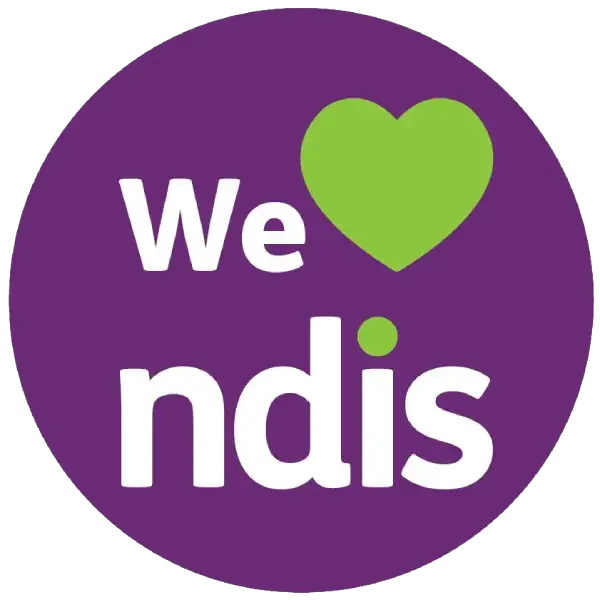Enquire about our SIL vacancies
Specialist Disability Accommodation (SIL) is a vital service designed for individuals living with disabilities who require extra support to live as independently as possible. SIL accommodation, also known as Supported Independent Living, provides a safe, supportive environment where individuals can live with assistance tailored to their unique needs.
Melbourne, as one of Australia’s most dynamic and diverse cities, offers a range of options for SIL accommodation. Understanding the various aspects of SIL accommodation in Melbourne is essential for individuals, families, and caregivers.
Below is an in-depth look at everything you need to know about SIL accommodation in Melbourne.
What is SIL Accommodation?
SIL accommodation is a residential support service that provides individuals with disabilities the opportunity to live as independently as possible while receiving the assistance they require. These services are designed to promote a higher quality of life by offering tailored support that aligns with personal goals and choices. Key characteristics of SIL accommodation Melbourne include:- 24/7 Support: The hallmark of SIL accommodation is the availability of support workers round-the-clock. These workers assist residents with various aspects of daily living, including personal care, meal preparation, medication management, and mobility support.
- Tailored Services: Support is personalised to each individual’s needs. Services may range from minimal support to more intensive care for those with complex needs.
- Choice and Control: SIL promotes choice by allowing individuals to make decisions about their lifestyle, care routines, and personal goals. This is in line with the person-centered approach, which is fundamental in modern disability services.
- Privacy and Dignity: Many SIL accommodations ensure that individuals have private spaces, such as bedrooms or private bathrooms, so that they can maintain their privacy and dignity.
- Community Participation: SIL accommodation promotes integration into the local community by encouraging individuals to participate in social activities, educational programs, employment opportunities, and recreational pursuits.
Types of SIL Accommodation in Melbourne
SIL accommodation can vary greatly, ensuring that people with different needs can find suitable housing arrangements. Here are further details on the most common types of SIL accommodation in Melbourne:-
Shared Homes:
- In this setup, several individuals with similar support needs live together in a shared house or apartment. Each person typically has their own private room, while common areas are shared.
- Benefits: Shared homes foster social interaction, build friendships, and reduce feelings of isolation. They can also offer a cost-effective way of delivering support services.
- Challenges: Privacy can be limited, and some individuals may not prefer living with others. Compatibility with housemates is an important factor to consider.
-
Independent Living Units (ILUs):
- Independent Living Units are designed for individuals who require less intensive support. These units provide more autonomy but may still offer on-site or on-call support when needed.
- Benefits: This type of accommodation is ideal for individuals who want to experience greater independence, such as managing their own cooking, cleaning, and personal care, with support available as necessary.
- Challenges: While providing more independence, some individuals may feel isolated due to the lack of regular social interaction with peers.
-
Co-Living Arrangements:
- In co-living arrangements, individuals may live in shared homes or apartments with family members or friends, but still receive external disability support. This arrangement allows individuals to maintain familial bonds while accessing necessary support services.
- Benefits: Co-living ensures that the individual stays within their social circle while still receiving professional care and assistance. It can also help families stay involved in the individual’s care.
- Challenges: Caregiver burnout could be a concern for families, particularly when they are providing part of the support themselves, in addition to the professional assistance provided.
-
Specialist Disability Accommodation (SDA):
- SDA properties are purpose-built for individuals with significant or complex disabilities. They are equipped with special features such as adjustable heights for furniture, accessible kitchens and bathrooms, wide doorways, and space for mobility aids like wheelchairs.
- Benefits: SDA ensures that individuals with more complex needs have a living space that is not only accessible but also comfortable and safe.
- Challenges: SDA properties can be more expensive due to the high cost of construction and specialized equipment. Funding from the NDIS may cover some of these costs, but affordability can still be a challenge for some.
What is the Eligibility for SIL Accommodation?
The eligibility for SIL accommodation is determined through a combination of the individual’s disability, the NDIS assessment process, and available funding. Here’s an expanded view of the eligibility process:-
Disability:
- To qualify for SIL accommodation, an individual must have a permanent disability that significantly impacts their ability to live independently and requires assistance with day-to-day activities. This includes both physical and intellectual disabilities, as well as complex health needs.
- Disabilities may include conditions like cerebral palsy, acquired brain injury, autism spectrum disorder, and intellectual disability.
-
NDIS Plan:
- The NDIS provides funding for SIL services based on an individual’s unique needs. The individual’s NDIS plan must include SIL funding for the person to access accommodation that provides support.
- The NDIS plan is reviewed regularly, and the level of funding may be adjusted based on changes in the individual’s needs or preferences.
-
Assessment of Needs:
- Before being approved for SIL, the person’s needs must be assessed by an NDIS planner or a qualified assessor. This will consider factors such as the level of support required for personal care, household tasks, and community participation.
- The assessment also looks at the individual’s goals and aspirations to ensure that the SIL arrangement will help meet these.
-
Choice of Accommodation:
- Individuals have the right to choose where they want to live, provided the accommodation meets their needs. SIL providers often work with individuals to assess which accommodation options are the most suitable.
How Does SIL Work?
The process of accessing and utilizing SIL accommodation is designed to be as individualized and flexible as possible, ensuring that each resident’s needs and preferences are met. Here’s a closer look at how SIL services work:-
Initial Assessment:
- The assessment process is integral to ensuring that SIL accommodation is the right fit for the individual. It involves evaluating the individual’s daily living skills, support needs, and goals.
- The assessment may involve consultations with healthcare professionals, family members, and previous care providers to ensure a comprehensive understanding of the individual’s requirements.
-
Choosing the Right SIL Provider:
- There are many SIL providers in Melbourne, each offering varying types of accommodations and support levels. It’s essential to review and select a provider who aligns with the individual’s needs, values, and lifestyle.
- Providers may vary in their approach to support, so researching their reputation and visiting their facilities can help individuals and families make informed decisions.
-
Creating a Service Plan:
- A service plan outlines the specific support an individual will receive, including their daily routines, care requirements, and long-term goals.
- This plan is collaboratively created with input from the individual, their family or caregivers, and support workers. It acts as a living document that can be updated as the individual’s needs evolve.
-
Ongoing Support:
- SIL services typically include various forms of support, such as assistance with personal care (bathing, dressing), medication management, meal preparation, and daily household tasks.
- Support is flexible and adjusted based on the person’s preferences. Individuals can access support during the day, at night, or on a set schedule.
-
Review and Adjustment:
- Reviews are conducted regularly to ensure that the services provided are meeting the person’s needs. Changes may occur to the individual’s support plan, such as increasing the number of support hours or adjusting the type of assistance required.
- Feedback from the individual and their family is critical in ensuring that SIL services continue to match their needs and preferences.
What are the Benefits of SIL Accommodation?
SIL accommodation provides numerous benefits that enhance an individual’s overall quality of life, independence, and well-being:- Independence and Empowerment: SIL fosters independence by encouraging individuals to perform as many daily tasks as possible with support. This empowerment enhances self-esteem and dignity, as residents have control over their daily lives.
- Tailored Care: One of the biggest advantages of SIL is that the care and support are tailored to the specific needs and goals of the individual. This approach fosters autonomy and ensures that the person’s unique abilities and challenges are taken into account.
- Social Inclusion: SIL accommodation encourages community participation, whether it’s through social activities, volunteering, or attending local events. This reduces isolation and enhances a sense of belonging, which is critical for mental and emotional well-being.
- Skill Development: SIL accommodation provides individuals with opportunities to develop life skills that promote independence. This includes learning or improving skills related to household tasks, budgeting, cooking, and personal hygiene.
- Quality of Life: By offering flexibility, choice, and support, SIL improves the individual’s quality of life. This holistic approach enables individuals to pursue personal goals, whether in education, work, or hobbies, all while receiving the necessary support for their disability.
Cost and Funding for SIL Accommodation
The financial aspect of SIL accommodation is a crucial consideration. Here’s a more in-depth look at how costs are structured and covered:-
Daily Living Support:
- The NDIS funding covers the cost of providing direct support services. This includes staff wages for personal care, help with activities such as cooking and cleaning, assistance with community access, and other related services.
- The amount of funding varies based on the assessed level of support required.
-
Accommodation Fees:
- Accommodation fees are separate from the NDIS funding and are generally paid directly to the housing provider. These fees may cover rent, utilities, and property maintenance. They can vary significantly depending on the type of accommodation.
- In some cases, individuals can apply for SDA funding to help cover the costs of purpose-built accommodation that meets their needs.
-
Additional Supports:
- Additional supports, such as allied health services (e.g., physiotherapy, speech therapy), are sometimes included in an NDIS plan if they are deemed necessary for the individual’s well-being.
- Some SIL providers also offer extra services, such as transport assistance or recreational activities, which may require additional funding.
How to Find SIL Accommodation in Melbourne?
There are several ways individuals and families can find the right SIL accommodation in Melbourne:- NDIS Providers: Many NDIS-registered providers offer SIL accommodation and can guide families through the process of selecting suitable options.
- Disability Support Agencies: Agencies specializing in disability support can assist with locating available SIL accommodations, as well as providing advice on eligibility, funding, and housing types.
- Online Resources: Websites dedicated to disability accommodation in Australia, such as the NDIS Provider Finder and other specialized platforms, provide extensive listings and contact information.
- Local Networks and Referrals: Referrals from local disability support organizations, support groups, and personal networks can also help individuals find reputable SIL providers and accommodation options.
Conclusion
SIL accommodation in Melbourne provides individuals with disabilities the opportunity to live in supportive, flexible environments while promoting independence and personal growth. At Ambition Health Group, we offer various options, including shared homes, independent living units, and specialist disability accommodation, ensuring that each person’s needs are met. Melbourne offers a wide range of choices to cater to the diverse needs of its residents. Our person-centered approach guarantees that every individual receives the care they need while maintaining control over their daily life, ultimately enhancing their overall quality of life.Frequently Asked Questions
1. What is the difference between SIL accommodation and Supported Living Programs? SIL accommodation involves both housing and support services, while Supported Living Programs are broader and may not always include accommodation.
2. How do I apply for SIL accommodation in Melbourne? To apply, you need an NDIS plan with SIL funding. After an assessment of your needs, you can choose a provider who will help you find suitable accommodation.
3. Can I choose the people I live with in a shared SIL home? You can usually express preferences, but the final decision on housemates depends on compatibility and support needs.
4. Does SIL accommodation include support for medical or health needs? Yes, SIL can include support for medical and health needs, such as medication management and coordination of allied health services, depending on your NDIS plan.
5. How much does SIL accommodation cost in Melbourne? Costs vary, but NDIS funding typically covers support services. Accommodation fees (rent and utilities) are usually paid separately, and the amount depends on your plan and needs.
Recent Posts
Top Rated Services
Get A Quick Quote Now
Enquire about our SDA vacancies
Enquiry Now
Consult Our Care Experts
Grab Your Free Consultation Today!
Or give us a call to speak to someone now
1300 668 655









